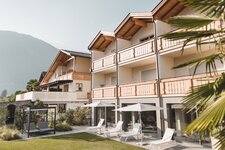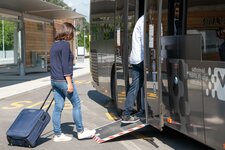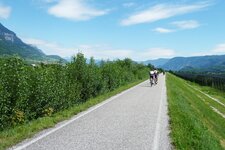Bolzano has once again secured a top spot in the national sustainability rankings
Every year, the "Ecosistema Urbano" sustainability ranking is compiled, a study by "Legambiente" and "Ambiente Italia". It assesses the environmental performance of the 106 Italian provincial capitals, evaluating air quality, per capita energy and water consumption, waste management, recycling rates, and local public transport. Bolzano holds fourth place in 2025, after Trento, Mantova and Bergamo. Particularly in the areas of renewable energy, waste management, and sustainable mobility, South Tyrol is above the national average.
Public transport
The public transport network is continuously being improved. This includes the electrification of the lines and the installation of the European Train Control System (ETCS) on trains between Merano and Malles, as well as the construction of the Val di Riga loop. In future, this will directly connect the Brennero railway line with the Val Pusteria railway line, eliminating the need for a detour. Time saved for passengers from the Val Pusteria: 15 minutes.
Both projects are currently being implemented.
Cycle mobility
Other projects in South Tyrol also cover cycle mobility, with the "Südtirol radelt" competition, the South Tyrolean "bikeforum" at the NOI Techpark, and the expansion of the cycle paths, which now connect all parts of South Tyrol. Schools are focusing on the programme for road safety and mobility education; the Safety Park driving safety centre in Vadena has also put together a package of courses and awareness campaigns for this purpose.
Electromobility
Electromobility is also being supported and, with the Provincial Plan for Sustainable Mobility 2035, strategic planning in the areas of passenger mobility, freight transport, and logistics is being adapted to the latest European Union guidelines. Since the end of 2013, South Tyrol's provincial capital has been one of the few European cities where hydrogen buses operate.
The goal of Green Mobility, sustainable Alpine mobility in South Tyrol, is to avoid, shift, and improve traffic. According to the South Tyrol Climate Plan 2040, a holistic and dynamic concept that brings together all relevant sectors of society to reduce greenhouse gas emissions, South Tyrol aims to be climate-neutral by 2040.

























